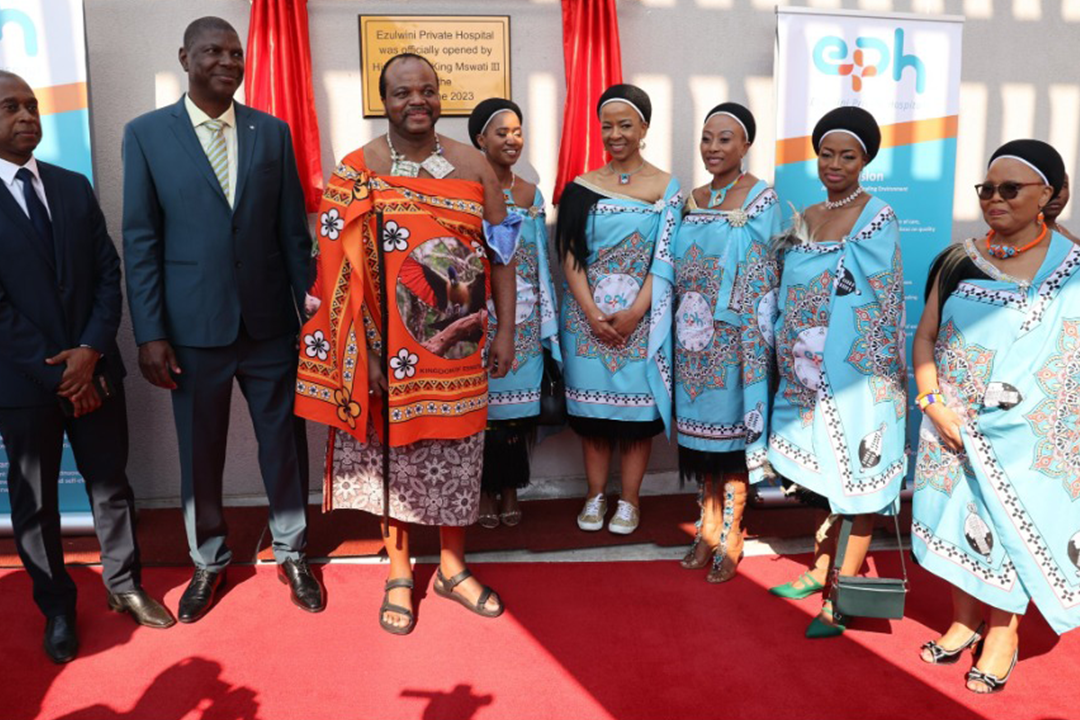By Phesheya Kunene
For Angela [not her real name], a mother from Manzini, the unthinkable happened when her teenage son collapsed during a school football match. Doctors quickly diagnosed him with a congenital heart defect requiring immediate surgery. The news was devastating, but the cost of the life-saving procedure was even more staggering, at close to E200,000.
“All I could think was, how will I ever afford this?” Angela recalled, her voice trembling with emotion. Faced with the possibility of losing her son and financial ruin, she felt powerless.
Fortunately, her family’s membership with Eswatini Med came through just when they needed it most. The organisation covered the entire bill, providing relief in what was otherwise a harrowing ordeal.
“They handled everything,” she shared. “From the initial emergency to the surgery and follow-up care, I didn’t have to worry about the finances. It gave me the strength to focus on being there for my son when he needed me the most.”
Her story is a powerful reminder of the importance of having a reliable healthcare partner, especially in emergencies where public healthcare systems often face constraints. While public facilities play a critical role, limited resources and delays can hinder timely treatment. On the other hand, private healthcare offers faster, more specialised care, but the costs are often beyond reach for many families. This is where medical aid acts as a crucial bridge, providing access to quality healthcare without the burden of unaffordable bills.
Principal Officer Peter Simelane of Eswatini Med spoke about the organisation’s commitment to its members during such critical times. “In moments of crisis, our role is not just about financial assistance. We are here to offer families the assurance that they are not alone. Health emergencies are deeply emotional moments, and we aim to provide hope alongside world-class care,” Simelane said.
He highlighted Eswatini Med’s inclusive approach, which ensures that even those with pre-existing conditions or limited means can access comprehensive healthcare.
“Through policies like open enrolment and risk pooling, we make sure no one is left behind. Everyone deserves access to healthcare that prioritises their well-being,” he added.
Marketing Manager Sicelo Mkhonta emphasised the importance of prevention in saving lives. “Medical emergencies like Sibusiso’s highlight why regular health checks are critical. Simple measures such as monitoring blood pressure, cholesterol levels, and overall physical health can detect conditions early and prevent emergencies,” he explained.
For Angela’s family, the experience reinforced the need for medical preparedness. “Eswatini Med didn’t just save my son’s life—they saved our family from financial ruin. I will forever be grateful,” she said, her gratitude evident.
Her ordeal serves as a stark reminder of the financial and emotional toll that unexpected medical crises can take on families. Experts warn that as healthcare costs rise, more families could face similar situations without adequate preparation.
Eswatini Med, one of the country’s leading medical aid providers, has been at the forefront of bridging this gap. With over 43 years of experience and 45,000 members, the organisation has become a cornerstone of accessible healthcare in Eswatini. Its robust network includes local and international healthcare facilities, ensuring members receive the best possible care regardless of where they are.
Angela’s story also underscores a broader reality: medical aid is not a luxury—it is a necessity. Many still see it as an optional expense, but the peace of mind it offers in emergencies is priceless. “There’s a misconception that medical aid is an unnecessary cost. But in life-or-death situations, it becomes the safety net that everyone needs,” Mkhonta added.
As her son recovers, Angela reflects on how differently the situation could have unfolded without Eswatini Med. “I don’t know what we would have done,” she admitted. “It’s moments like these that make you realise how important it is to have a trusted healthcare partner.” Her story is not just one of survival but also a testament to the transformative impact of reliable medical aid. For families across Eswatini, it is a powerful reminder to prioritise preparation and ensure access to quality healthcare when it matters most.




